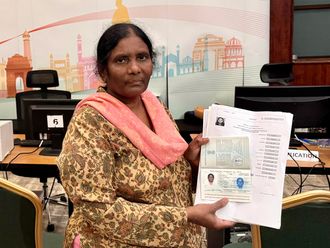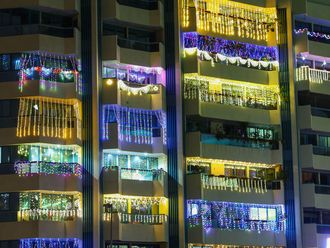Teofisto Guingona, Vice-President of Philippines, has officially resigned from his post as Secretary of the Department of Foreign Affairs (DFA), marking the sidelining of a key critic as President Gloria Macapagal-Arroyo brings the Philippines closer to an anti-terror partnership with the United States.
Guingona told reporters in an interview yesterday in his office, "I'm tired. I'm going to take a vacation."
Arroyo, in a statement, said she has accepted "with regrets" Guingona's resignation, which will be effective from July 15.
A joint statement signed by the president and vice-president cited that Guingona's resignation from the Cabinet "stemmed from an honest difference of opinion concerning policy. The president is the chief architect of foreign policy, the Vice-President yields. The vice-president will continue to hold the president in high esteem, and is committed to good governance".
The resignation followed last week's premature release of a letter by the palace, accepting Guingona's resignation from the Cabinet. Guingona, at that time denied he had resigned, and embarrassed palace officials had to admit the release of the president's letter was an inadvertent 'mistake'.
The country's two top officials are known to be at odds over the presence of the American soldiers in the Philippines for joint military exercises with the Filipino troops.
Guingona, early this year, had threatened to quit his post over allegations that Arroyo and defence officials have been bypassing his office over issues that were the concern of the DFA.
Guingona had stood firm that allowing combatants from a foreign country in the Philippines is prohibited by the constitution, but Arroyo said the joint exercises with the U.S. are necessary in order to address security concerns such as the rise of extremism in the south and the global upsurge in terrorism.
Arroyo nevertheless, said she will "continue to support the programmes initiated by the vice-president in his capacity as secretary of foreign affairs," which include a project that will allow overseas Filipino workers (OFWs) to invest in treasury bonds and a housing programme for OFWs.
Aside from Guingona, two other DFA undersecretaries Merlin Magallona and Sixto Roxas will also leave their posts on July 15. Magallona is Undersecretary for Migrant Workers' Affairs while Roxas holds the post of Undersecretary for International and Economic Relations. The officials did not publicly give any reason for their resignation, but it is known that the two were the appointees of Guingona.
As for Guingona's replacement, the presidential palace is still reviewing its shortened list of candidates for the sensitive post.
Reports said Senator Blas Ople, ex-senator Ernesto Maceda, Lauro Baja, the DFA Undersecretary for Policy, Raul Rabe, former ambassador to Washington, and Roberto Romulo, Presidential Adviser for Internal Competitiveness are among those being considered.
The resignation is also mired in political controversy and is the latest episode in the contentious relations between the two officials who belong to the same party, the Lakas (People Power).
Last week, as the resignation fracas raged, Guingona gave a statement that he has plans to run in the 2004 elections but did not specify for what position.
The pronouncement fuelled speculations that he will be running against Arroyo in the race for the presidency. There were also reports that Guingona had been 'eased out' of the DFA to accommodate personalities from the opposition People's Masses Party (PMP), who now control the Senate.
Alex Magno, head of the think tank Foundation for Economic Freedom, said "there is no one on the horizon who could provide a credible challenge not only to the president but also to the desirability of continuity that reelection entails."
AFP adds: Arroyo allies said the row had had a damaging effect on ruling party unity. "Some of our partymates are getting disturbed," said Arroyo aide Jose Rufino.
University of the Philippines political science professor Mal-aya Ronas, however, said the row had a "peripheral impact" on Arroyo's popularity. More important for the public was the battle against inflation, particularly for utility rates, he said. "She must show resolve to bring down these prices."
Arroyo's public approval rating slipped by nearly six percentage points to just over 42 per cent last month. Independent pollsters blamed the slump on high electricity rates.
With Guingona sidelined, Arroyo is now expected to tackle a legislative gridlock that followed the defection of an ally in the Senate last month.
The defection blocked her efforts to shepherd through tax reforms aimed at addressing a widening budget deficit.
Guingona resigns as foreign secretary
Teofisto Guingona, Vice-President of Philippines, has officially resigned from his post as Secretary of the Department of Foreign Affairs (DFA), marking the sidelining of a key critic as President Gloria Macapagal-Arroyo brings the Philippines closer to an anti-terror partnership with the United States.












